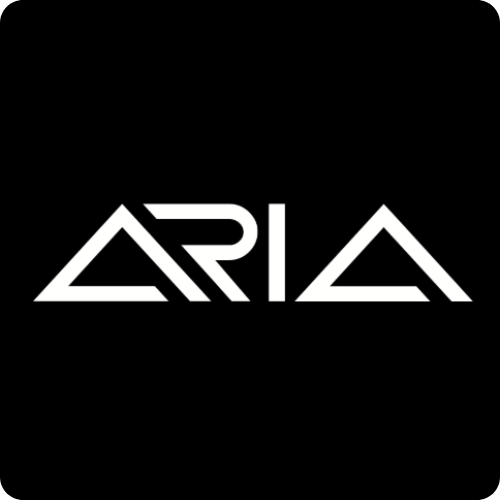
ServiceNow
ServiceNow is an American software company, founded in 2003, that provides a cloud-based platform for automating and managing business workflows. Headquartered in Santa Clara, California, ServiceNow’s core offering is the the Now Platform, an intelligent and intuitive cloud platform that automates workflows across IT, employee, and customer service departments.
The Now Platform allows businesses to streamline operations, optimize productivity, and create seamless experiences for both employees and customers. It includes a suite of applications for IT service management (ITSM), IT operations management (ITOM), strategic portfolio management, and more.
As a member of the Hedera Governing Council, ServiceNow is leveraging the Hedera Consensus Service to create immutable and auditable records of transactions and interactions that occur on the Now Platform. This integration enables the creation of trusted, multi-party business processes, enhancing data integrity and enabling new possibilities for tokenization, decentralised identity, and secure data sharing across organizational boundaries. This allows ServiceNow to extend the reach of its digital workflows to entire business ecosystems.
Project Information
Related Projects

The Aria Network is an integrated media company founded in 2018 and based in Los Angeles, California. Its focus is on creating immersive digital experiences that bridge the gap between physical and virtual assets. Aria works with global brands, sports leagues, and celebrities to develop new forms of engagement through augmented reality and other digital technologies.
Aria's primary product is the Aria Exchange, a platform for non-fungible tokens (NFTs). A key feature of the exchange is the concept of "living NFTs," which allows creators to continuously add new content and value to a token after its initial purchase. The platform is designed to be carbon-negative, tracking the carbon footprint of each transaction and offsetting it through partnerships.
The Aria Exchange is built with a direct and foundational connection to the Hedera network. Every NFT minted and traded on the Aria Exchange is securely stored on the Hedera distributed ledger. This integration provides an immutable and transparent record of ownership and transaction history for every digital asset.

Power Transition is a UK-based clean technology company founded in 2018. Its focus is on accelerating the global shift to a zero-carbon economy by providing a smart software platform that optimizes and decentralizes energy systems.
The core of Power Transition's service is its Digital Energy Platform, a revolutionary energy resource management system that uses distributed ledger technology (DLT) to enable the tokenization of energy. This platform provides a common language for energy transactions and trading, allowing millions of devices, from electric vehicles to smart home appliances, to become active participants in the energy system. Key services include Smart MicroGrid Services, which enable peer-to-peer energy trading within a community, and Electric Vehicle Integration Services, which provide a single point of billing and data validation for EV fleet operators.
Power Transition's entire platform is built on the Hedera network. It leverages the Hedera Token Service (HTS) and the Hedera Consensus Service (HCS), Power Transition to tokenize and energy use, providing a transparent and auditable record of all transactions.

Wallawallet is a dedicated mobile cryptocurrency wallet designed to provide a secure and stable experience for users of the Hedera Hashgraph network. It was developed by Ledgerama with a core mission to offer robust management for HBAR, Hedera's native cryptocurrency, and Hedera Token Service (HTS) tokens. With an emphasis on security, it operates as a non-custodial solution ensuring users maintain complete control over their private keys, which are stored directly on their mobile devices. To further enhance security and minimize attack surfaces, it intentionally forgoes a web interface, focusing on a dedicated app environment for iOS and Android.
Key features of Wallawallet include seamless sending and receiving of HBAR and HTS tokens, along with integration for Ledger hardware wallets, allowing users to combine the convenience of a mobile app with the enhanced security of cold storage. It also incorporates functionality to support the Hedera ecosystem with features to help users associate tokens in preparation for airdrops, including HBAR-weighted airdrops.
Pixel Rug is a Web3 firm specializing in the creation small-batch and one-of-a-kind 3D digital collectibles designed for the metaverse. These original artworks are minted as non-fungible tokens (NFTs) on the Hedera blockchain network. It aims to cater to a distinct market segment by offering unique, ownable digital art pieces.
The platform features several distinct collections. Its "First Edition," released in December 2021, featured nine original 3D collectible designs. This was followed by a "Limited Edition" in May 2022, which introduced six ultra-rare designs notable for being the first multi-file 3D NFTs minted on Hedera. Beyond these collections, Pixel Rug also offers a "Custom Series," allowing collectors to commission personalized, one-of-a-kind PixelRug designs.
A key aspect of Pixel Rug is its integration with metaverse environments, where the 3D designs can be viewed and experienced, including in virtual reality (VR). The project also fosters a community aspect through regular meetups. Additionally, holders of three or more PixelRugs are granted "Super Rug Holder Perks," which include access to exclusive VIP Discord channels and early updates, enhancing the collector experience.
